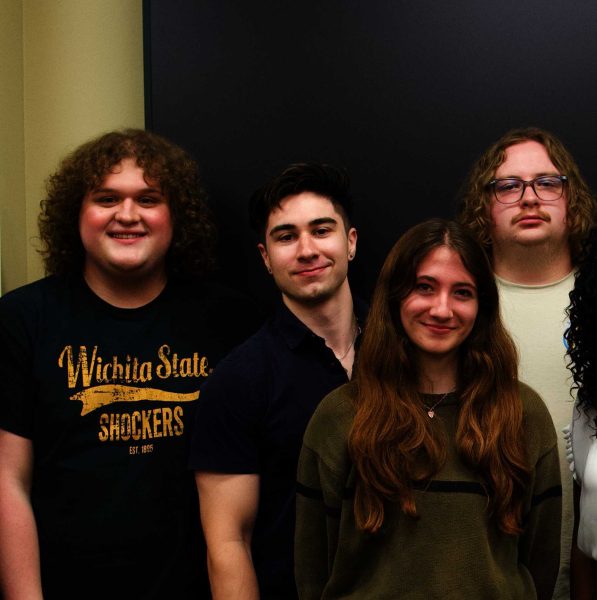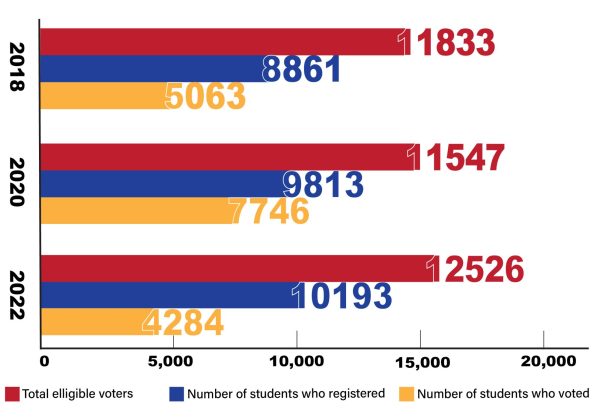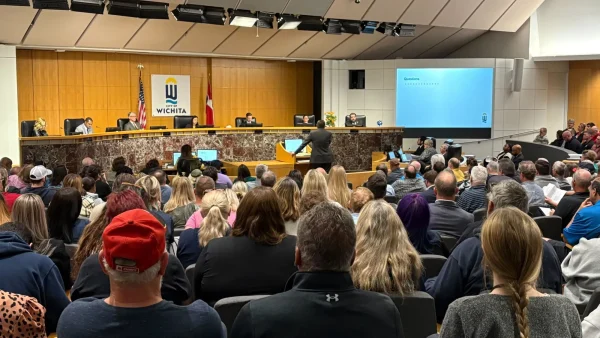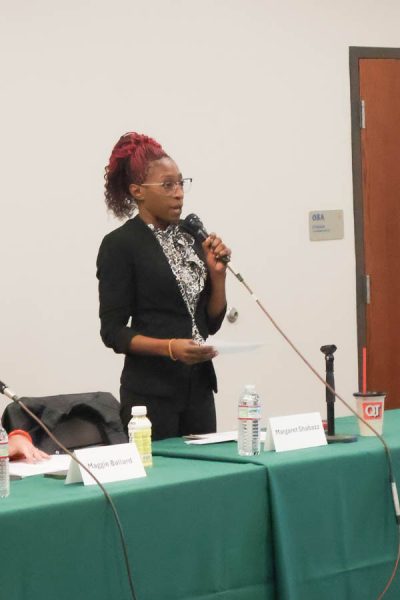Private Wonder school opens its doors at Wichita State
Cofounder of Wonder, Zach Lahn, speaks to The Sunflower about the new school that opened its doors this month on the Wichita State campus.
With Hurricane Florence bearing down on the East Coast, Wonder co-founder and CEO Zach Lahn found a way to work the storm into Wednesday’s lesson plan. Armed with a leaf blower, Lahn took his students outside to test their makeshift structures, built to withstand hurricane-force winds.
“It’s all about relevance,” Lahn said of his teaching style.
Wonder, a Koch-family funded private school, opened Sept. 4 in a renovated space in Wichita State’s former Printing Services building. Thirty-nine students, ages three to 11, now attend school daily on campus.
“Very quickly, I realized just how much of a dedication there is to like, innovative thinking here at Wichita State,” Lahn said.
Lahn co-founded Wonder with Annie Koch, Charles Koch’s daughter-in-law. He said WSU is the ideal location for a school that invests in children and fosters creativity.
“We have a very fundamental belief that every child — every child is capable of great things and deserves to find their calling, and they can change the world,” Lahn said. “We believe that and we tell these kids that every day.”
Lahn said Wonder espouses no political or religious ideology.
A former fundraiser and state director for Americans for Prosperity, a Koch-backed conservative political advocacy group, Lahn said he and Annie Koch met for the first time at a Youth Entrepreneurs convention where they discussed their similar views on education.
He said for now, he’s put politics on the back burner.
“I’m solely focused on this project right now,” Lahn said.
Wonder does not plan to seek accreditation through the Kansas Department of Education, meaning it will not be required to follow state regulations, administer state tests, or hire licensed teachers.
Instead, the school plans to use a portfolio-based approach to showcase students’ projects and presentations throughout the year.
“We’re trying to help students be more creative, and the portfolio-based approach is being adopted by more and more schools,” Lahn said.
Wonder has hired three WSU grads to be full-time guides — there are no “teachers” at the school — but it’s unclear what applied learning opportunities Wonder will afford current WSU students.
The College of Applied Studies’ Intern Handbook says “persons certified for student teaching shall engage in student teaching only in educational agencies which are accredited or approved by the state board of education and which have entered into a written contract with a teacher education institution.”
Shirley Lefever, dean of the College of Applied Studies, said she’s excited to explore applied learning opportunities with Wonder in the future, but that those conversations haven’t started yet.
“I think any time that we can find opportunities for our students to have applied learning, it’s going to be a win, and I think those opportunities will be available in the Wonder school,” Lefever said.
Lahn echoed Lefever’s sentiment.
“Shirley Lefever has a very open mind to new ideas, and so I’m hoping we’re able to develop a great partnership that can benefit both sides,” Lahn said.
Wonder has plans to open a middle school and eventually a high school on Innovation Campus. Lahn said they could break ground on their new building as early as fall of 2020.
“Any time you get a K-12-aged student on WSU’s campus, it increases the opportunity that they will come here as a student,” Lefever said.
To qualify for admission at WSU, traditional students must satisfy at least two of three criteria — attain a 2.0 GPA from an accredited school, be in the top third of their class, or score a 21 on the ACT.
WSU works with homeschoolers and students from non-accredited schools on a case-by-case basis.
Bobby Gandu, director of admissions at WSU, said a portfolio-based approach to education complicates the admissions process.
“I’ve been pulled into a room with the administration and we’ve kind of started to think through how would we admit students from the Wonder school, where there’s not, say, traditional grades and transcripts,” Gandu said. “And to be honest, I don’t know that we have that fully answered yet.”
Non-traditional metrics of tracking student achievement are becoming increasingly common across the country — something Gandu said college admissions professionals will have to adapt to.
Tuition at Wonder is $10,000 a year for elementary students and $6,500 a year for preschoolers. Lahn said the school has already started providing financial aid.
“We wanted to find the right families to start the school off, and we found some amazing families,” Lahn said.
“It wasn’t a question when we sat down with somebody, we asked ‘is that something you can pay?’”
Lahn said Wonder plans to provide scholarships or financial aid to 25-30 percent of its student body in the future.
He said a student’s socioeconomic background doesn’t determine whether or not they can succeed at Wonder — it’s more about a mindset of self-directed problem solving.
“Some people that come from lower socioeconomic environments have the most entrepreneurial skills you can find,” Lahn said. “So absolutely we want that in the school.”
A political science graduate from the University of Colorado, Lahn has no background in education. He said he first became interested in the subject upon the birth of his son, who is now attending Wonder.
Reflecting on his childhood, Lahn said he wanted more for his son than a traditional learning environment.
“If my son is the way I was when I was that age, I want to find an environment for him that will let him thrive,” Lahn said. “Society needs people like that that think entrepreneurially, that are enterprising, but unfortunately, a lot of traditional systems try to work that out of you or aren’t set up for that mindset.”
WSU Vice President for Strategic Communications Lou Heldman said Wonder is in-line with the university’s mission.
“We’re at a time in the history of the university where we’re trying to let ideas bloom,” Heldman said. “So we’re going to nurture a lot of different ideas, and some of them will be fantastic and some of them will turn into utter failures, and that’s the nature of innovation — that you try a lot of things and you learn from them.”

Matthew Kelly is a former editor-in-chief and managing editor for The Sunflower. Kelly graduated in 2020 with a bachelor’s degree in political science...











Henrietta Carter • Jan 30, 2021 at 7:34 am
Program of such is very good for kids that are special need and interest. Me and my husband are involved with a school like this. And I want main focus is to make sure we help to unlock the mind of the children at a particular location in Africa .so we would like to partner with Wonder school and become networking
Henrietta Carter of real-foundation.org